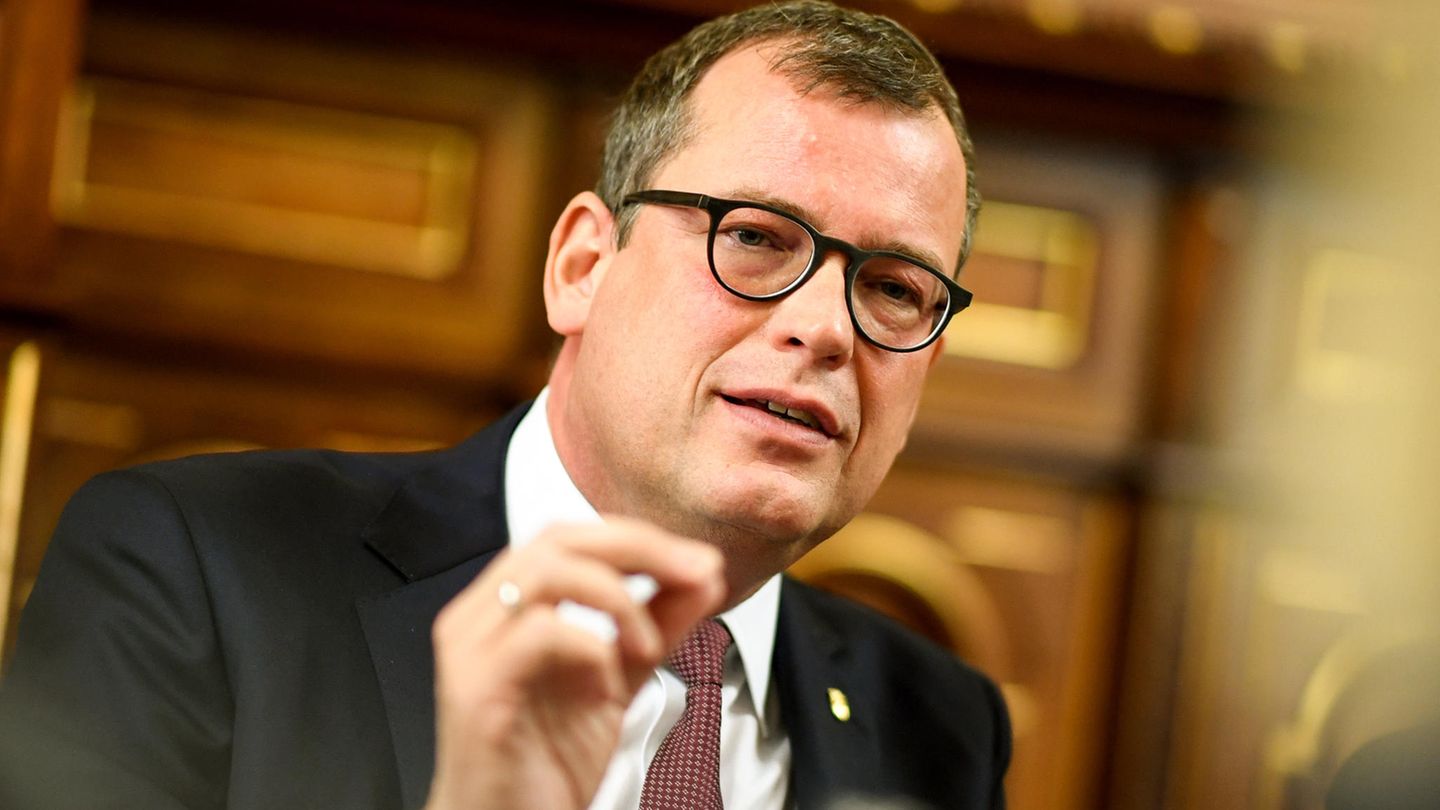The plans of the future traffic light coalition do not go far enough for the National Academy Leopoldina. In the fight against the fourth corona wave, she calls for mandatory vaccinations for certain professional groups and the expansion of the 2G rule.
In view of the increasing number of new corona infections and the incidence value, the National Academy of Sciences Leopoldina is urging the expansion of 2G rules and vaccination requirements for certain professional groups. “Vaccination obligations for multipliers” are now necessary, said Leopoldina President Gerald Haug to “Spiegel”. These are not just nurses, but also teaching staff and other professional groups with a lot of contact with other people.
The 2G rule, according to which only vaccinated or convalescent people are allowed access to events, should be given “a greater scope”, demanded Haug and the Leopoldina researchers. In the occupational health and safety ordinance, “an appropriate regulation for the disclosure of the vaccination status” should also be laid down for employees. So far, employers are not allowed to inquire about the vaccination status of their employees.
The Leopoldina’s demands go beyond traffic light proposals
The demands of the Leopoldina go well beyond the plans of the traffic light parties SPD, Greens and FDP, which will be discussed in the Bundestag on Thursday. For example, it does not provide for mandatory vaccination for certain groups; the expansion of 2G rules should largely be left to the federal states.
According to the Robert Koch Institute (RKI), the nationwide corona incidence reached a new record on Wednesday morning of 232.1. The number of new infections rose to 39,676 within 24 hours. The number of deaths of people infected with corona also rose massively to 236 within one day.
The Leopoldina also recommended more intensive research on antiviral drugs. The existing vaccines are a major step forward in coping with the coronavirus pandemic, according to a statement by the scientific society published on Wednesday. Nevertheless, there is still a need for action in the development of antiviral drugs. On the one hand, effective and inexpensive antiviral drugs are specifically against Covid-19.
More drugs need to be developed
On the other hand, with a view to future pandemics, broadly effective drugs should be developed that work against different types of a virus family. Specific active ingredients against Corona would “still be important if the virus becomes endemic after the pandemic has subsided and circulates permanently in parts of the population”. Serious disease courses could develop in unvaccinated people and in people who do not develop adequate immune protection even after being vaccinated several times.
The few existing drugs were not enough, explained the Leopoldina member Helga Rübsamen-Schaeff. “It is important to have highly effective active ingredients that can be used as early as possible after infection in order to stop the virus from multiplying and the pathogen from passing on.” Easily available drugs for swallowing or inhalation are also of great importance in regions of the world where the population does not have sufficient access to vaccines and medical infrastructure
In addition, the development of active ingredients should not only begin when a new pandemic virus has emerged, explained the virologist Ralf Bartenschlager. “It should be pushed ahead vigorously in advance.” An important concept here are broad spectrum active ingredients – drugs that are effective against as many types of a virus family as possible.
Source From: Stern




